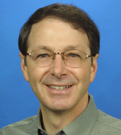
| Program |
 |
|
|
|
| Find in Program |
 |
|
|
|
| Page |
 |
|
|
|
| Basket |
 |
|
view, help
"
OOPSLA Keynote—The Future of Programming
"
|
|
|

|
OOPSLA Keynote—The Future of Programming
Ballroom A-B
Tuesday, 8:30, 1 hour 30 minutes | 7 | · | 8 | · | 9 | · | 10 | · | 11 | · | 12 | · | 13 | · | 14 | · | 15 | · | 16 | · | 17 | · | 18 | · | 19 | · | 20 | · | 21 |
 Richard F. Rashid, Microsoft Research: Dr. Rashid founded and heads Microsoft Research—one of the largest industrial research organizations in the field of computer science. Before joining Microsoft in 1991, Dr. Rashid was a professor for 12 years at Carnegie-Mellon University and is best known for his work in developing the Mach operating system, which is the basic kernel underlying MacOS 10 and several commercial versions of Unix. Dr. Rashid has published papers and holds patents in many areas of computer science, including operating systems, computer vision, networking, programming languages, data compression, AI, and security. He is also the author of two computer games: AltoTrek—one of the first network computer games—and Allegiance—a massive multiplayer space strategy combat game published in 2000. He is a member of the National Academy of Engineering. Richard F. Rashid, Microsoft Research: Dr. Rashid founded and heads Microsoft Research—one of the largest industrial research organizations in the field of computer science. Before joining Microsoft in 1991, Dr. Rashid was a professor for 12 years at Carnegie-Mellon University and is best known for his work in developing the Mach operating system, which is the basic kernel underlying MacOS 10 and several commercial versions of Unix. Dr. Rashid has published papers and holds patents in many areas of computer science, including operating systems, computer vision, networking, programming languages, data compression, AI, and security. He is also the author of two computer games: AltoTrek—one of the first network computer games—and Allegiance—a massive multiplayer space strategy combat game published in 2000. He is a member of the National Academy of Engineering.
The nature of the software development process is changing in
significant ways. New tools for program specification, program
analysis, program proof, and testing are coming out of the
laboratory and into practice. Languages are being adapted to new
task domains and new problem areas. There are new ways to track
and manage software and hardware errors in the field and new
techniques for datamining that information to reduce the time from
fault to fix. At the same time, fundamental questions about the
computational process are being raised by new processors. My talk
will address these changes and look at how they will affect the
way we think of programming over the next 10 years.
|

 Richard F. Rashid, Microsoft Research: Dr. Rashid founded and heads Microsoft Research—one of the largest industrial research organizations in the field of computer science. Before joining Microsoft in 1991, Dr. Rashid was a professor for 12 years at Carnegie-Mellon University and is best known for his work in developing the Mach operating system, which is the basic kernel underlying MacOS 10 and several commercial versions of Unix. Dr. Rashid has published papers and holds patents in many areas of computer science, including operating systems, computer vision, networking, programming languages, data compression, AI, and security. He is also the author of two computer games: AltoTrek—one of the first network computer games—and Allegiance—a massive multiplayer space strategy combat game published in 2000. He is a member of the National Academy of Engineering.
Richard F. Rashid, Microsoft Research: Dr. Rashid founded and heads Microsoft Research—one of the largest industrial research organizations in the field of computer science. Before joining Microsoft in 1991, Dr. Rashid was a professor for 12 years at Carnegie-Mellon University and is best known for his work in developing the Mach operating system, which is the basic kernel underlying MacOS 10 and several commercial versions of Unix. Dr. Rashid has published papers and holds patents in many areas of computer science, including operating systems, computer vision, networking, programming languages, data compression, AI, and security. He is also the author of two computer games: AltoTrek—one of the first network computer games—and Allegiance—a massive multiplayer space strategy combat game published in 2000. He is a member of the National Academy of Engineering.